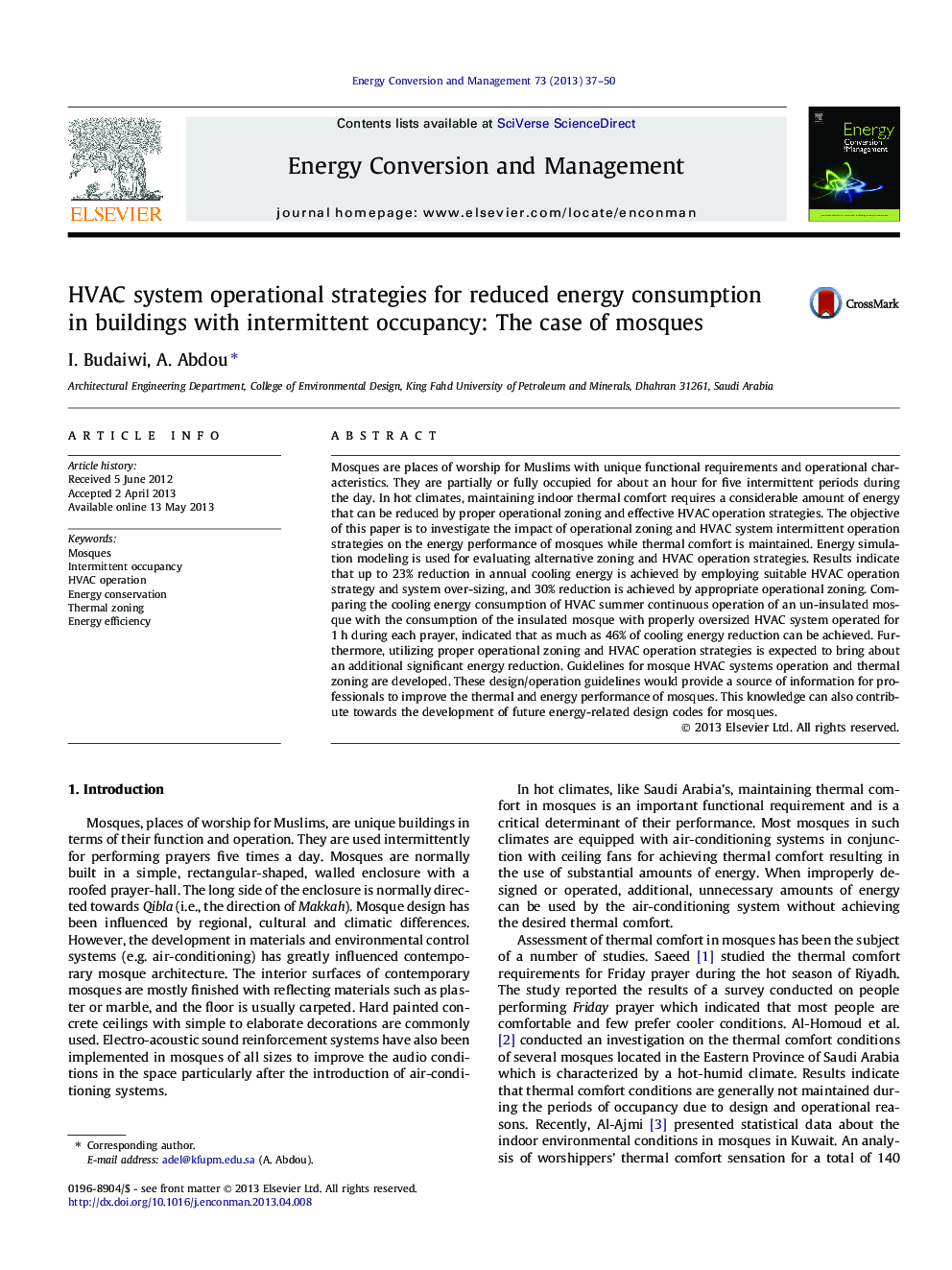| کد مقاله | کد نشریه | سال انتشار | مقاله انگلیسی | نسخه تمام متن |
|---|---|---|---|---|
| 764236 | 1462889 | 2013 | 14 صفحه PDF | دانلود رایگان |

• Proper operational zoning in the early design phase of mosques can lead to up to 30% reduction in the annual cooling energy.
• Energy performance index of 71.0 kW h/m2 yr for an insulated mosque can be realized with A/C proper intermitted operation.
• 23% energy saving can be achieved when a properly oversized A/C is operated intermittently for 1 h during each prayer.
• 13% reduction in cooling energy use can be achieved when A/C operation precedes worshippers’ occupancy in mosques.
• Envelope insulation and A/C intermittent operation with proper operational zoning leads to more than 46% savings in energy.
Mosques are places of worship for Muslims with unique functional requirements and operational characteristics. They are partially or fully occupied for about an hour for five intermittent periods during the day. In hot climates, maintaining indoor thermal comfort requires a considerable amount of energy that can be reduced by proper operational zoning and effective HVAC operation strategies. The objective of this paper is to investigate the impact of operational zoning and HVAC system intermittent operation strategies on the energy performance of mosques while thermal comfort is maintained. Energy simulation modeling is used for evaluating alternative zoning and HVAC operation strategies. Results indicate that up to 23% reduction in annual cooling energy is achieved by employing suitable HVAC operation strategy and system over-sizing, and 30% reduction is achieved by appropriate operational zoning. Comparing the cooling energy consumption of HVAC summer continuous operation of an un-insulated mosque with the consumption of the insulated mosque with properly oversized HVAC system operated for 1 h during each prayer, indicated that as much as 46% of cooling energy reduction can be achieved. Furthermore, utilizing proper operational zoning and HVAC operation strategies is expected to bring about an additional significant energy reduction. Guidelines for mosque HVAC systems operation and thermal zoning are developed. These design/operation guidelines would provide a source of information for professionals to improve the thermal and energy performance of mosques. This knowledge can also contribute towards the development of future energy-related design codes for mosques.
Journal: Energy Conversion and Management - Volume 73, September 2013, Pages 37–50